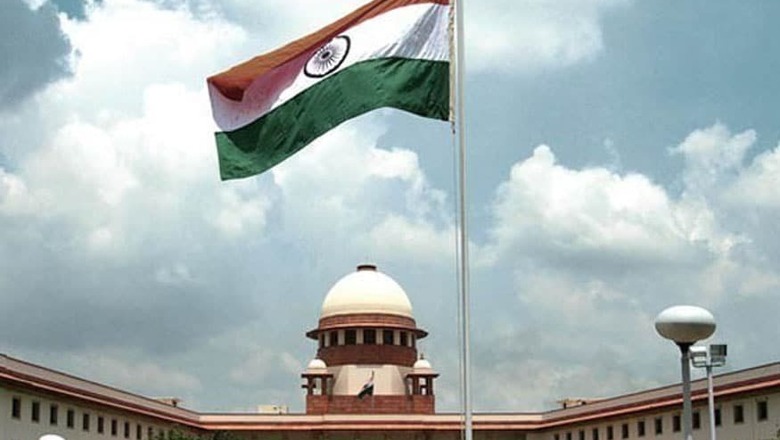
views
New Delhi: Addressing a woman as a "call girl" cannot be considered sufficient to prosecute anyone for abetment of suicide under Section 306 of the Indian Penal Code (IPC), the Supreme Court held on Friday.
According to the apex court, such a verbal abuse cannot fasten criminal liability under Section 306 that can entail punishment up to 10 years in jail.
A bench of Justices Indu Malhotra and R Subhash Reddy made this observation while affirming an order of the Calcutta High Court, clearing a man and his parents of charges of abetment of suicide.
The woman, who was in a relationship with the man, had committed suicide on March 6, 2004 — a day after her boyfriend's parents resisted their marriage and addressed her as a "call girl".
The Calcutta High Court in July 2009 had discharged the accused of the charges framed against them under section 306 read with section 34 (common intention) of the IPC in the case.
The Supreme Court upheld the decision of the High Court, highlighting "there was no goading or solicitation or insinuation" by either the boyfriend or his parents forcing the woman to commit suicide.
"By considering the material placed on record, we are also of the view that the present case does not present any picture of abetment allegedly committed by respondents. The suicide committed by the victim cannot be said to be the result of any action on part of respondents nor can it be said that commission of suicide by the victim was the only course open to her due to action of the respondents," said the bench.
The apex court dismissed the appeal filed by the West Bengal government, noting whether any conduct will constitute direct or indirect act of incitement to the commission of suicide is a matter that is required to be considered in facts and circumstances of each case, and in this case the ingredients of the offence were not made out.
It was alleged that the man was appointed as a teacher of the girl, who was a painter and artist, and they had developed intimacy during the course of coaching.
The police had alleged that the girl went to the house of the man where his parents addressed her as a "call girl" after which she became mentally perturbed and committed suicide in March 2004. Later, on the complaint of parents of the girl, an FIR was lodged in the matter.
According to the police, there were two suicide notes of the victim in which she had stated she was stigmatised as parents of the man had addressed her as a "call girl".
When the charge sheet was filed in the case, the accused had filed an application for discharge but it was rejected by the trial court.
Later, when they moved the high court challenging the charges framed against them, it discharged them "by recording a finding that terming the deceased as a call girl, there was no utterance which can be interpreted to be an act of instigating, goading or solicitation or insinuation, the deceased to commit suicide".
(With inputs from PTI)


















Comments
0 comment